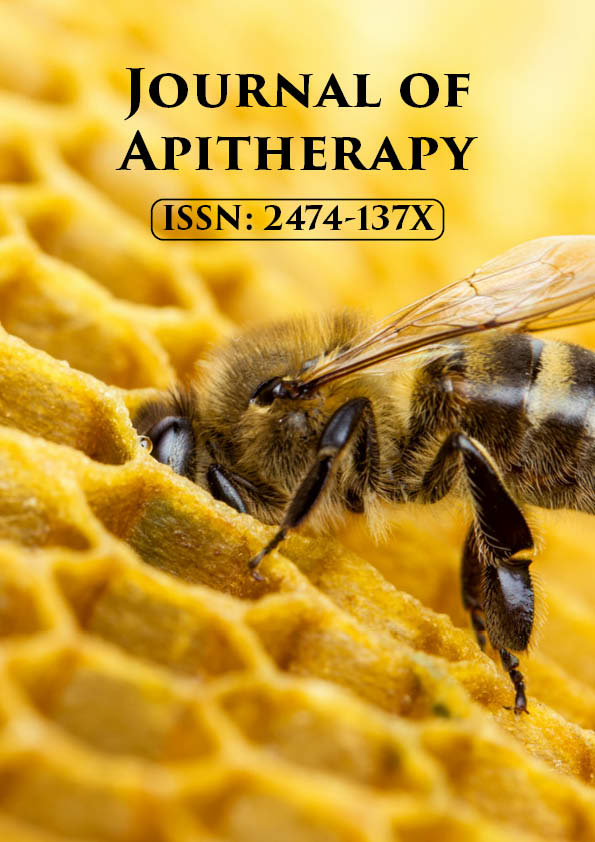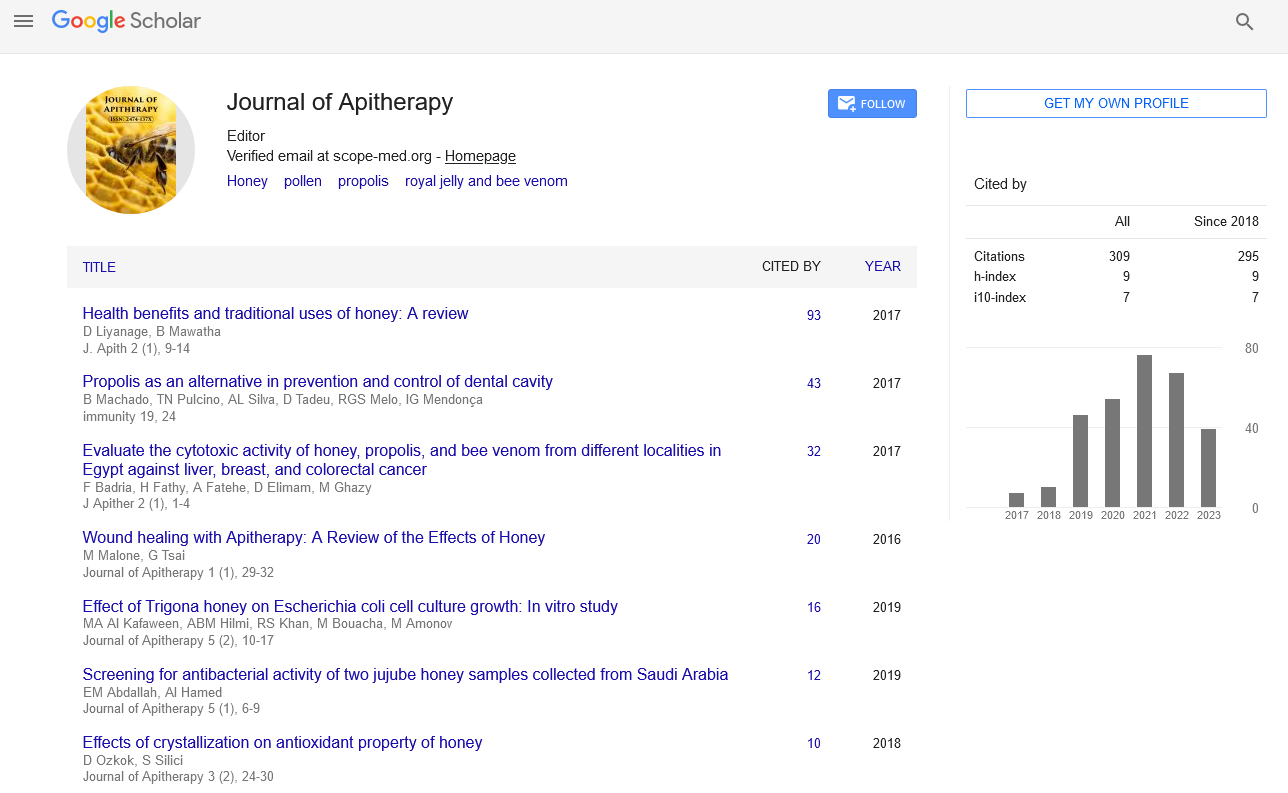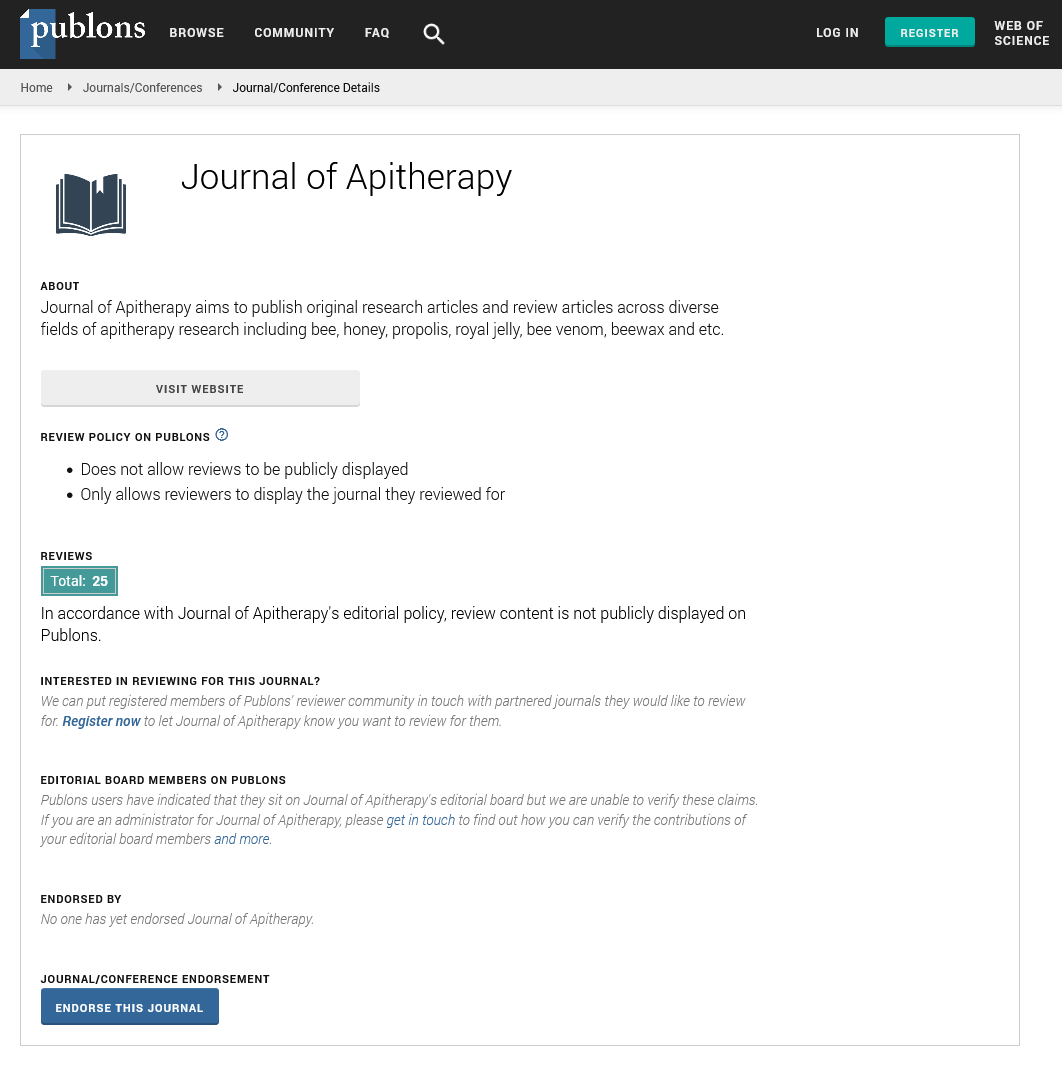Opinion Article - Journal of Apitherapy (2024)
Apitherapy and Immune Support: Enhancing Wellness with Bee Products
Noah Chang*Noah Chang, Department of Pharmaceutical Sciences, University of Science and Technology, Bangladesh, Email: Noah@gmail.com
Received: 19-Feb-2024, Manuscript No. JAPITHERAPY-24-128348; Editor assigned: 22-Feb-2024, Pre QC No. JAPITHERAPY-24-128348 (PQ); Reviewed: 08-Mar-2024, QC No. JAPITHERAPY-24-128348; Revised: 15-Mar-2024, Manuscript No. JAPITHERAPY-24-128348 (R); Published: 22-Mar-2024
Description
In recent years, there has been a growing interest in alternative and complementary therapies that harness the healing properties of natural substances. Among these therapies, apitherapy-the use of bee products for medicinal purposes-has gained prominence for its potential to support immune function and overall wellness. This essay delves into the concept of apitherapy, exploring the diverse range of bee products used, their effects on the immune system, and the evidence supporting their use in promoting health and well-being.
The diversity of bee products
Apitherapy encompasses a wide array of bee-derived substances, each with its unique composition and therapeutic properties. Honey, perhaps the most wellknown bee product, is revered for its antibacterial, anti-inflammatory, and antioxidant properties. Propolis, a resinous substance collected by bees from tree buds and sap, is valued for its antimicrobial and immune-stimulating effects. Royal jelly, a secretion produced by worker bees, is rich in nutrients and believed to support immune function and vitality. Bee pollen, collected by bees from flowering plants, is packed with vitamins, minerals, and antioxidants, making it a popular dietary supplement. Lastly, bee venom, delivered through stings, has been studied for its potential anti-inflammatory and pain-relieving properties.
Supporting immune function
The immune system serves as the body’s defense mechanism against pathogens, toxins, and foreign invaders. Bee products have been studied for their ability to modulate immune function and enhance the body’s natural defenses. Honey, with its antimicrobial properties, may help inhibit the growth of harmful bacteria and promote the healing of wounds and infections. Propolis exhibits immune-modulating effects, stimulating the activity of immune cells such as macrophages and lymphocytes. Royal jelly contains compounds that may enhance immune function by promoting the production of antibodies and cytokines. Bee pollen, rich in nutrients and antioxidants, may support immune health by providing essential vitamins and minerals. While bee venom, when administered in controlled doses, has shown potential immunomodulatory effects, stimulating the production of anti-inflammatory substances and promoting tissue repair.
Clinical evidence and research
While anecdotal evidence of the therapeutic benefits of bee products abounds, scientific research on apitherapy and immune support is still evolving. Numerous studies have investigated the immunomodulatory effects of bee-derived substances, yielding promising results. Research suggests that honey may enhance the activity of immune cells, such as macrophages and neutrophils, and stimulate the production of cytokines involved in the immune response. Propolis has demonstrated antimicrobial activity against various pathogens and may help support immune function by enhancing the body’s ability to fight infections. Royal jelly has been shown to stimulate the production of antibodies and enhance the activity of natural killer cells, key components of the immune system’s defense against pathogens. Bee pollen, with its rich nutritional profile, may support immune health by providing essential vitamins, minerals, and antioxidants. While bee venom therapy remains a subject of debate, some studies suggest that controlled exposure to bee venom may induce immunomodulatory effects, potentially benefiting individuals with autoimmune conditions.
Apitherapy offers a holistic approach to immune support and wellness, harnessing the healing power of bee products to promote health and vitality. From honey and propolis to royal jelly, bee pollen, and bee venom, each bee-derived substance offers unique therapeutic benefits that can enhance immune function and overall well-being. While further research is needed to fully understand the mechanisms of action and efficacy of apitherapy, the evidence to date suggests that bee products have the potential to play a valuable role in supporting immune health and promoting optimal wellness. As interest in natural and complementary therapies continues to grow, apitherapy stands out as a promising avenue for enhancing immune function and improving quality of life.
Copyright: © 2024 The Authors. This is an open access article under the terms of the Creative Commons Attribution Non Commercial Share Alike 4.0 (https://creativecommons.org/licenses/by-nc-sa/4.0/). This is an open access article distributed under the terms of the Creative Commons Attribution License, which permits unrestricted use, distribution, and reproduction in any medium, provided the original work is properly cited.







